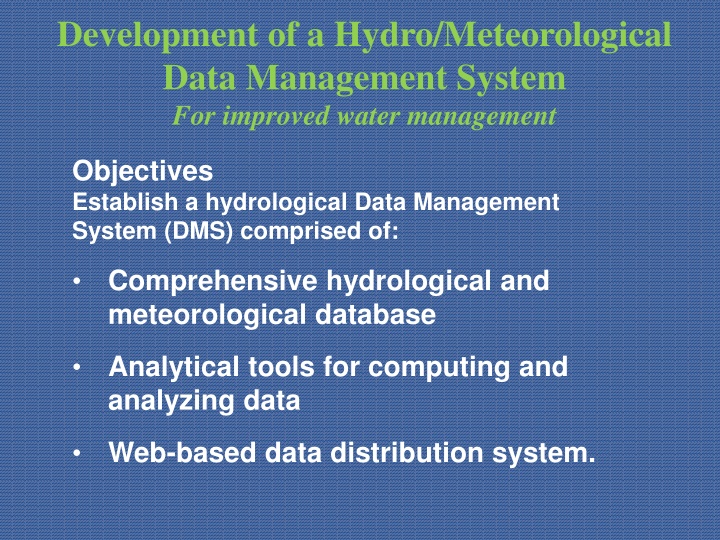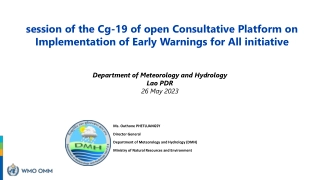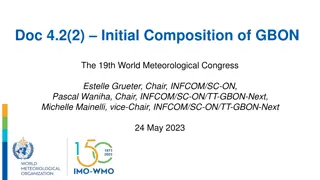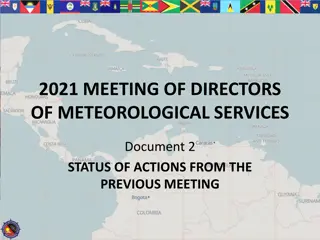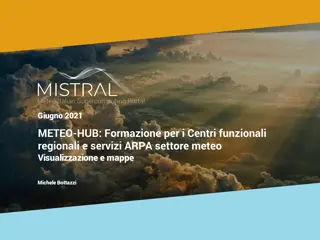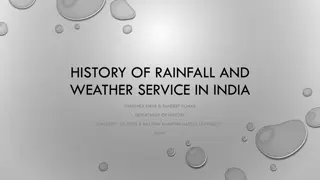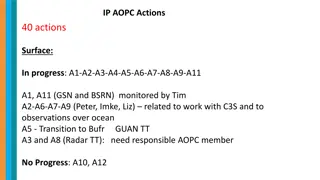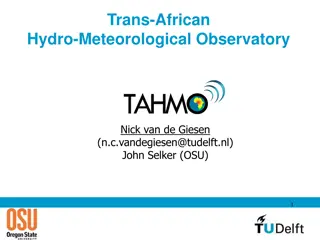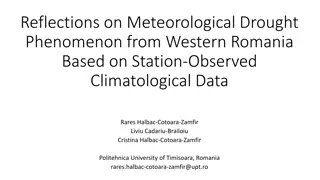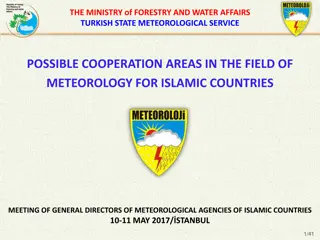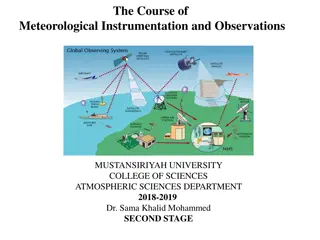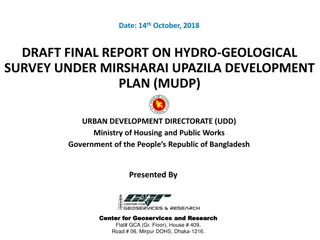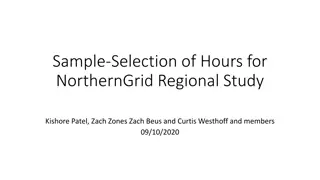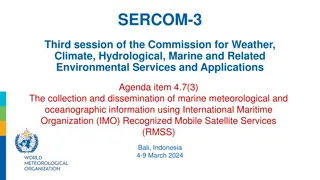Development of a Hydro/Meteorological Data Management System
This project aims to establish a Hydrological Data Management System (DMS) with a comprehensive database, analytical tools, and web-based data distribution for enhanced water management. The system will enable efficient computation and analysis of hydrological and meteorological data to support better decision-making in water resource management.
Download Presentation

Please find below an Image/Link to download the presentation.
The content on the website is provided AS IS for your information and personal use only. It may not be sold, licensed, or shared on other websites without obtaining consent from the author.If you encounter any issues during the download, it is possible that the publisher has removed the file from their server.
You are allowed to download the files provided on this website for personal or commercial use, subject to the condition that they are used lawfully. All files are the property of their respective owners.
The content on the website is provided AS IS for your information and personal use only. It may not be sold, licensed, or shared on other websites without obtaining consent from the author.
E N D
Presentation Transcript
Development of a Hydro/Meteorological Data Management System For improved water management Objectives Establish a hydrological Data Management System (DMS) comprised of: Comprehensive hydrological and meteorological database Analytical tools for computing and analyzing data Web-based data distribution system.
Data Management Issues Quantity of historic and real-time data - Database needed for storage and backup Analysis and quality assurance - Software integrated with database Data availability - Maximum value comes from easy access
Database These data are a valuable national asset which are needed to take full advantage of limited water resources. They need to be stored efficiently to: 1. Protect against loss 2. Be readily available for use by all The Data Management System (DMS) includes a database for storage and archival of all historic, current, and future hydrological and meteorological data. In addition to Water-quality data (discrete and continuous)
Data Management Issues Quantity of historic and real-time data - Database needed for storage and backup Analysis and quality assurance - Software integrated with database Data availability - Maximum value comes from easy access
Software Integrated with database for efficiency Includes a set of useful tools - Rating analysis - Discharge computation - Statistical analyses - Load computation - Model input datasets
DMS is capable of supporting Basic statistical analyses (means, std dev, min/max Advanced statistical analyses (flood frequency, flow duration, low-flow frequency, trends) Graphical rating analysis Supports telemetry and SCADA processing in real time Flood warning
DMS (continued) Groundwater data storage and analyses Aquifer test data storage Snow data storage Water-quality data storage and analysis (discrete and continuous) such as pH, conductivity, sediment, temperature, or salinity Customized reports Internet publication of data and analyses (password protected)
Data Management Issues Quantity of historic and real-time data - Database needed for storage and backup Analysis and quality assurance - Software integrated with database Data availability - Maximum benefit comes from easy access
Data Access via Internet Web-based distribution system capable of managing and disseminating historic and current hydrologic and meteorological data is most efficient
Data Access (continued) Access to data is needed by - Water resource managers - Irrigators - Public water supply managers - Hydroelectric facility managers - Emergency managers - Public
In-house or Off-the-Shelf Software This question merits careful consideration. Once you decide on a path it can be difficult and costly to turn back.
In-house Software Pros Better understanding of your internal corporate needs and objectives Open source code rather than proprietary Cons Generally more costly in the end Committing staff away from your core- competency which is water not programming
Off-the Shelf Pros Software developers have well-qualified programmers and maintain the latest tools. Competition with other vendors results in constant improvements and lower costs. Cons Custom changes or upgrades can be time consuming and costly
Technical support Continuing interaction between the software developer (in-house or vendor) and your personnel will be critical. If off-the-shelf (OTS) software is purchased make sure and carefully specify technical support requirements that meet your needs rather than agreeing to their stated policy.
Data Management System Regardless of whether the decision is made to use in-house or off-the-shelf software, it is critical that the software is up and running and staff are trained to use it early in the HIS development process.
